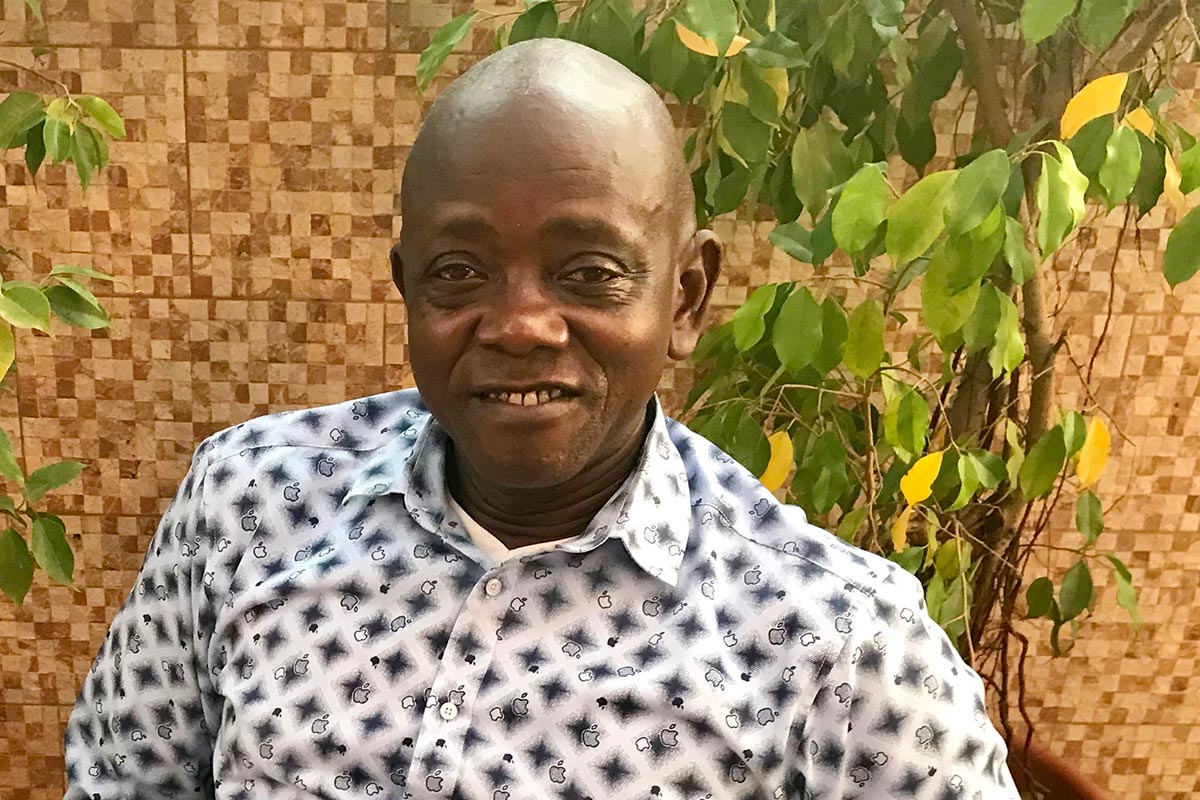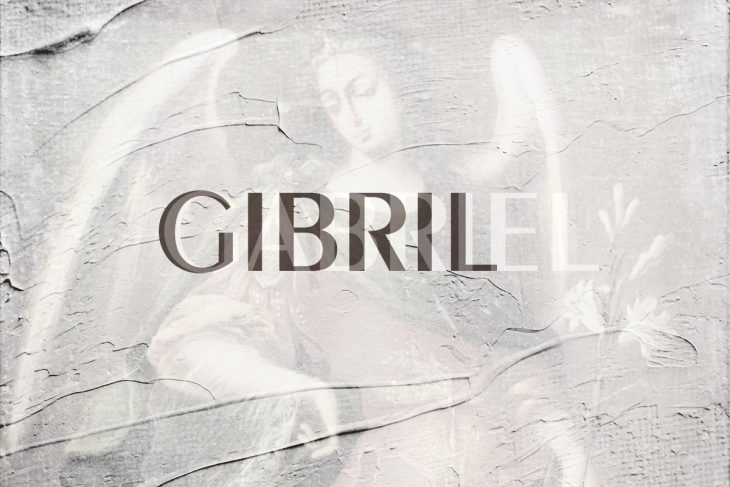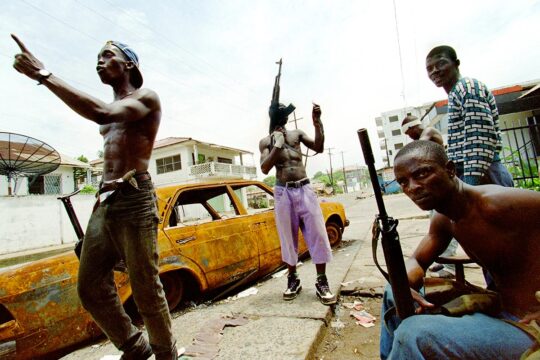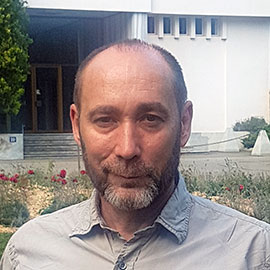Hassan Bility is a central figure in Liberian activists’ fight to bring to justice the warlords who scarred Liberia between 1989 and 2003. Investigations by the NGO he founded and directs, the Global Justice Research Project (GJRP), and its Swiss partner Civitas Maxima have led to most of the prosecutions of former Liberian warlords in exile in the United States, Switzerland, Belgium, France and the United Kingdom. They also triggered the investigations that led the Finnish justice system to now be trying Gibril Massaquoi. This former commander and spokesman for the Revolutionary United Front (RUF), a Sierra Leonean rebel movement officially active between 1991 and 2001, is accused of crimes against humanity committed in Liberia between 1999 and 2003. From February 23 to April 7, the Finnish court that is trying him relocated to the Liberian capital Monrovia to hold a major part of the trial. Fifty-five witnesses were heard over 21 days of hearings. Hassan Bility was the second-to-last witness to appear.
But the Massaquoi case is not like the other Liberian cases. For there is a direct and personal connection between Bility and this case. Since at least 2009, Bility has accused Massaquoi of personally torturing him in 2002 while he was held incommunicado in Liberian jails. Without this testimony, there would be no Massaquoi trial today. This recollection is the reason for the investigations opened in 2018 by the GJRP and Civitas Maxima -- and then Finland, where Massaquoi has resided since 2008, took up the case based on information submitted by these NGOs.
Tortured in Liberian jails
In 2002, Bility was editor of Liberian magazine The Analyst. He had already been arrested six times when, on June 24, he was arrested for the seventh and final time. At the hearing, he gave an almost cinematic account of his arrest, which took place before the eyes of his one-and-a-half-year-old son, on whom he cast a mute gaze through the rear window of the vehicle into which he had just been forced. Taken before Liberian President Charles Taylor himself, he was lectured in front of a crowd of regime bigwigs. Taylor wanted him to confess to plotting to overthrow him by buying weapons and storing them in the US embassy, and by bringing in mercenaries. The head of state gave the names of the accomplices whom Bility was ordered to denounce. But Bility refused to videotape the false confessions. And during the next six months, he was taken to multiple places of detention, suffering threats, punishments and torture.
The worst part of his ordeal was between July 26 and the end of August 2002. This was the period when he was detained at Clay Junction, a major intersection about 35 km north of the capital. He and about eight fellow prisoners were secretly held under a roadside weighing station. It was the middle of the rainy season and the area was flooded.
Bility briefly recalled the torture known as "tie-bay" he underwent there, where bonds cruelly cut his arms (he still has the scars), as well as electric shocks on his genitals. “This was done by a man who introduced himself as Angel Gabriel. He asked me what it meant. He said he was Gibril Massaquoi. I knew Gibril is Arabic for Gabriel. I could tell he was Sierra Leonean because of his accent. I believe I had heard his name on radio in connection to the RUF. Mr. Massaquoi wanted me to tell the truth. And the truth he wanted was an admission that I had planned to overthrow Charles Taylor. It was he who was directly doing the interrogation. He tied me. He stepped on me and kicked me when I resisted. And he was present when I was electrocuted.”
At the hearing, nearly 18 years after the event, Bility placed this moment of terror on July 26, 2002. In other statements he has made in the past, including a few weeks after his release in February 2003 and only three years ago when questioned by his colleagues at Civitas Maxima, he placed the event a week later, in August. But the witness says he has since clarified his memory with the help of former inmates. "They said it was that day. It was Independence Day." Bility named another former detainee who would corroborate his accusation against Massaquoi - an imam, who is said to have forgiven his torturer. He has not been questioned by the Finnish judiciary. The story of Massaquoi acting as a torturer in Taylor's jails in mid-2002 - around the time that the same Massaquoi began his contacts in Sierra Leone with investigators from a newly established UN tribunal in that neighbouring country - is a unique story.

“I’m your Angel Gabriel”
But there is another key element of the human rights activist's testimony. Bility was the first to say that Massaquoi had the nom de guerre Angel Gabriel. He says he told it publicly immediately after his release in late 2002, in his forced exile in the United States. But there is no record of this. In contrast, in 2009, Bility testified at the trial of Taylor, the former president of Liberia from 1997 to 2003 who was sentenced in 2012 to 50 years in prison by the UN tribunal for Sierra Leone. His public testimony on January 13, 2009 is the first public record referring to Angel Gabriel:
"I did see someone that I had previously reported on, Gibril Massaquoi, who (…) asked me when torturing me if I knew the meaning of Gibril and I said yes, because I understand Arabic. I said it means Gabriel. He said, 'Okay, I'm your Angel Gabriel. I have been instructed by [Joe Towah, the prison supervisor] to make you to talk.' (…) By this time I had basically almost lost track of time, but I do know I was held there well into August [2002]."
Apart from this testimony, the nom de guerre allegedly used by Massaquoi does not appear anywhere else. It is not in the work of the Sierra Leonean Truth and Reconciliation Commission, completed in 2004, that blames Massaquoi heavily for crimes committed by the RUF, nor in the report of the Liberian Truth and Reconciliation Commission, completed in 2009, which never mentions the former RUF commander. There is nothing of it in the rest of the investigations by the UN tribunal for Sierra Leone, where Massaquoi was a witness and a key informant for the prosecutor. Nothing in the investigations conducted in Lofa after the war by Human Rights Watch. And like other experts, Lansana Gberie, one of the best experts on the RUF and the civil wars in Sierra Leone and Liberia who was in frequent contact with Massaquoi at the time of Bility's allegations, is adamant that no one had ever seen this nom de guerre appear.
Until 2018, reference to Angel Gabriel aka Massaquoi existed only in Bility's testimony. Then, suddenly, it spread everywhere -- first in the investigations of Civitas Maxima/GJRP, launched in January 2018 in Lofa, then in those of the Finnish police, which took over. The Angel Gabriel then no longer appeared only in Lofa but also in Monrovia. This appearance of Angel Gabriel alias Massaquoi is therefore central in this case. It makes Bility's testimony key.
Yet at the hearing, the defence did not ask the witness about this, focusing on his involvement in the initial Civitas investigations and his possible contacts with a key investigator on the Finnish team, a Liberian recruited from within Bility's organization. At this stage of the trial, the mystery of Angel Gabriel remains.







